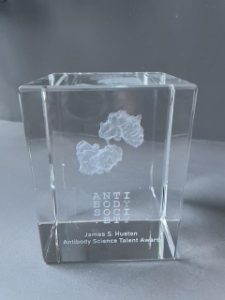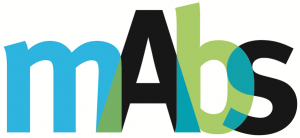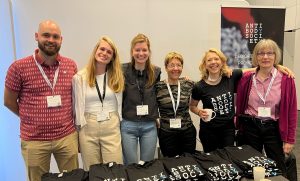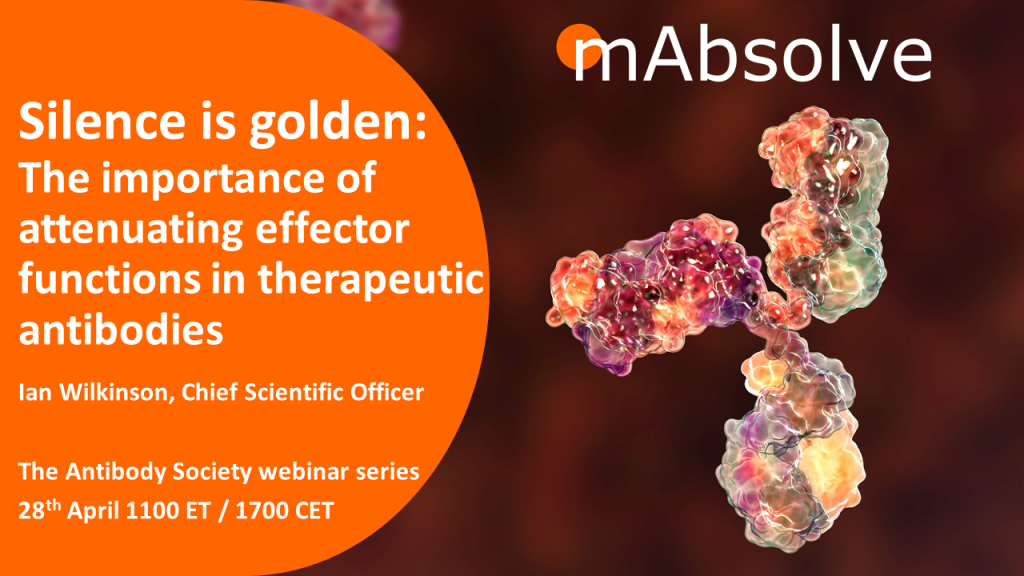Post written by Czeslaw Radziejewski, Ph.D.
Antibody Engineering & Therapeutics, held in December 2022, offered many opportunities to hear exciting and informative presentations by experts in the field, including Li Peng, Ph.D., who discussed “Engineering of human Sialidase Neu2 as Novel Immunotherapy for Degrading Immunosuppressive Sialoglycans to Enhance Antitumor T-Cell Immunity”.
Glycans are the most abundant structures on the cell surface. They are involved in cell communication with immune cells, and abnormal glycans can cause immune dysfunction in cancer and inflammatory diseases. Glycans typically terminate in sialic acid, but in cancer cells, sialic acid is present at a much higher abundance. The most common sialic acid in humans is N-acetylneuraminic acid, which plays a crucial role in numerous intercellular interactions, including with immune cells in the extracellular matrix, epithelial cells, and antibodies. Many studies have shown that sialoglycans are immunosuppressive and that high levels of surface sialoglycans are linked with poor outcomes in many tumor types. Hypersialylation of the surface of cancer cells makes these cells prime ligands for sialic acid-binding immunoglobulin-type lectins (Siglecs), which are found on the surface of immune cells. Once bound to sialylated glycans, Siglecs promote immunosuppressive signaling, thus conferring protection on the tumor cell. There are 15 human Siglecs. In addition, CD-28 is also known to bind sialoglycans. Most immune cells express more than one Siglec.
In her plenary lecture at the 2022 Antibody Engineering & Therapeutics conference, Professor Carolyn Bertozzi, outlined opportunities for the development of cancer treatments based on understanding the cell-surface glycome. She favored degrading sialoglycans with the enzyme sialidase to eliminate the immunosuppression promoted by Siglecs. As proof of concept, a fusion protein was created in Bertozzi’s lab using click chemistry, linking bacterial sialidase to the C-terminus of trastuzumab. The conjugate was tested in a mouse model of a trastuzumab-resistant HER2+ breast cancer model, and the results showed that the treatment essentially abrogated tumor growth. Based on these promising findings, Bertozzi cofounded Palleon Pharmaceuticals to explore sialidase-based biotherapies for cancer treatment.
At the conference, Dr. Li Peng, Chief Scientific Officer of Palleon Pharmaceuticals, presented the company’s progress in moving this concept toward the clinic. Palleon created a set of proprietary Siglec-based reagents for immunohistological hypersialylation detection and probing its role in immunotherapy resistance. Using such reagents, Palleon examined tissues from metastatic melanoma patients treated with PD1 blockade and showed that patients with a high level of sialylation fared much worse than patients with lower levels of sialoglycans. Following Bertozzi’s line of reasoning, the company pursued a strategy of using the enzymatic functionality of sialidase to remove excessive cell-surface sialylation. To translate this idea into a human therapeutic, Palleon decided to use a genetic fusion of sialidase with human Fc.






